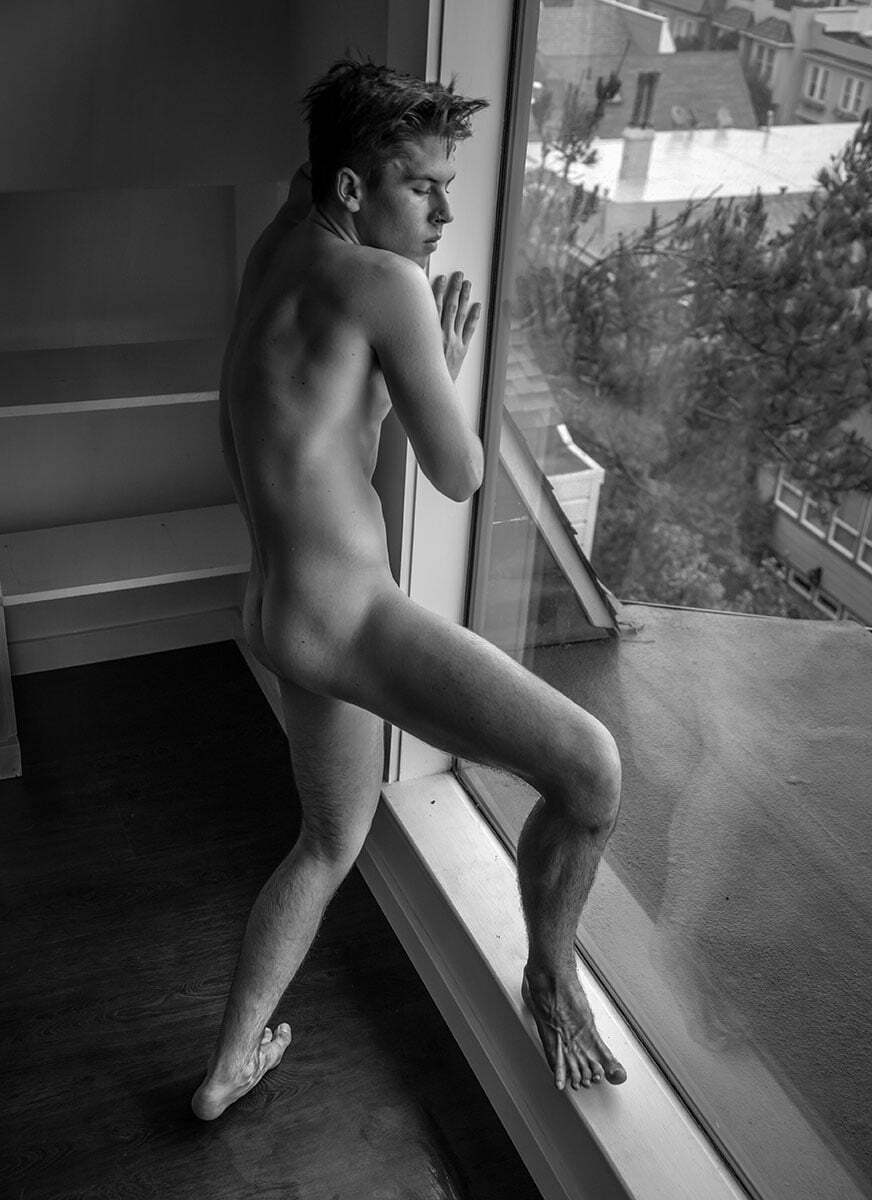Feedback
Another complication in the public-ness of making dance is the broken relationship with feedback. On one hand, there is the balletic archetype of choreographer as God: the all-knowing wizard of knowledge, never questioned or second-guessed. That is a real thing. On the other hand, we now live in a culture of most-complete equality of opinion. Ideas and art now, are presented within a Facebook discussion that might exist entirely in an accounting of thumbs up. Expertise, context, thoughtfulness, and familiarity are mostly meaningless in the weight they hold.
 The after of a premiere can be pretty depressing. There is the release and celebration of this thing finally happening, which is usually met (at least in my case) with an audience that does not look you in the eye. I’ve come away from so many shows and talked to collaborators who tell me “people loved it!” But it is very rare that anyone even gives a compliment after a show. If anything at all, and at their worst, people offer FEEDBACK. I have turned this over enough times with the observers of this phenomenon who are close to me to learn that there is a level of intimidation in talking to the choreographer after a show and that people want to make a good impression. Trust me, those shoes do not look good on me either (see Texas 02). So if there is any perspective I can give, it is this: the performance you saw, is the tip of an iceberg. It is held up and made possible by weeks of exploration and research and soul searching and work and revision…all of it from a place of integrity and striving to get at something that has not existed before. What happens on opening night is what the piece is. It is not a trial to see if you will like it and find out what I can do to make it more like you, it is the statement that I have arrived at as boldly as I can muster. Even if I feel like I failed, I stand behind the process that got me there and know it will get me closer to the goal next time. It is very easy to say no. It is very easy to say what you don’t like. It is very easy to feel like your perspective offers the solution. But the chance that your opinion is the one that would have solved the problematic moments of a piece is infinitesimal.
The after of a premiere can be pretty depressing. There is the release and celebration of this thing finally happening, which is usually met (at least in my case) with an audience that does not look you in the eye. I’ve come away from so many shows and talked to collaborators who tell me “people loved it!” But it is very rare that anyone even gives a compliment after a show. If anything at all, and at their worst, people offer FEEDBACK. I have turned this over enough times with the observers of this phenomenon who are close to me to learn that there is a level of intimidation in talking to the choreographer after a show and that people want to make a good impression. Trust me, those shoes do not look good on me either (see Texas 02). So if there is any perspective I can give, it is this: the performance you saw, is the tip of an iceberg. It is held up and made possible by weeks of exploration and research and soul searching and work and revision…all of it from a place of integrity and striving to get at something that has not existed before. What happens on opening night is what the piece is. It is not a trial to see if you will like it and find out what I can do to make it more like you, it is the statement that I have arrived at as boldly as I can muster. Even if I feel like I failed, I stand behind the process that got me there and know it will get me closer to the goal next time. It is very easy to say no. It is very easy to say what you don’t like. It is very easy to feel like your perspective offers the solution. But the chance that your opinion is the one that would have solved the problematic moments of a piece is infinitesimal.
Feedback is usually a necessary part of the process. I get feedback from a small group of people who’s aesthetic and world view fit with and benefit what I seek to accomplish. They are people who know how to prod me and ask me questions that get me to a better version of myself. Everyone has an opinion, but if everyone had room to give theirs as I am making a piece, I would end up every time with the Transformers movie.
Many of us value art because we want to be artists. There is an ownership in what we see that can make it seem like ours, but you are not an artist until you take the risk yourself. And if you really value that art that someone else has taken the risk for, then the most helpful thing that you can offer to making it even greater, is gratitude. Even if you didn’t like a particular work, if there is anything you can see was attempted and failed, any risk or striving, any success, that’s worth thanking them for. If you don’t, if the work was insulting in how it didn’t try, in how it did not aspire to change the world, then go home, say nothing and stop paying to see that artist. Your criticism wont help anyway.
 It occurs to me that the support of an artist is, in its very best form, that of a muse…to sing to and draw out the best parts of a dreamer rather than to manage their worst. A skilled artist knows how to edit, adapt, ask, and perfect (if they are someone you respect, know that their life is steeped in these practices) but the yes of openness and endless possibility is much harder to come by. If you really want to help someone make their best work, support them in fostering their wonder. Communicate that you believe in them. I can’t tell you how many times I have admired someone and never told them, usually just because they are famous or something of the equivalent. Why would my own particular gratitude matter? But of course it matters! How much gratitude is too much? When is the expression of appreciation a detriment? I cannot think of an instance. Let’s thank the people who work toward making our lives better, or more meaningful, or more full of beauty! Let’s love them and hug them as much as that living fountain of creativity that exists inside each person yearns to be heard and lifted up. Waiting until an artist is dead to recognize the value of their contribution and to not live in the fullness that comes from their work is sad for us. Be brave and wear what you love in plain sight. Let it be known what gives you pleasure. Embody the active role of an audience and don’t hide behind your unwillingness to succumb and be affected. You are a vital part of it.
It occurs to me that the support of an artist is, in its very best form, that of a muse…to sing to and draw out the best parts of a dreamer rather than to manage their worst. A skilled artist knows how to edit, adapt, ask, and perfect (if they are someone you respect, know that their life is steeped in these practices) but the yes of openness and endless possibility is much harder to come by. If you really want to help someone make their best work, support them in fostering their wonder. Communicate that you believe in them. I can’t tell you how many times I have admired someone and never told them, usually just because they are famous or something of the equivalent. Why would my own particular gratitude matter? But of course it matters! How much gratitude is too much? When is the expression of appreciation a detriment? I cannot think of an instance. Let’s thank the people who work toward making our lives better, or more meaningful, or more full of beauty! Let’s love them and hug them as much as that living fountain of creativity that exists inside each person yearns to be heard and lifted up. Waiting until an artist is dead to recognize the value of their contribution and to not live in the fullness that comes from their work is sad for us. Be brave and wear what you love in plain sight. Let it be known what gives you pleasure. Embody the active role of an audience and don’t hide behind your unwillingness to succumb and be affected. You are a vital part of it.









